
views
Reviewing the Material

Create a study schedule for yourself. Set aside a block of time every day for your studies. Work in 30-minute to 2-hour blocks to help yourself retain the most information. It’s best to list the topics or subjects you plan to study each day to help you stay on track. Schedule your studies for the time of day when you feel most alert. For example, you might study for 1 hour every morning after breakfast and 1 hour every evening after dinner. If you were studying for your medical board exams, you might spend the first hour studying concepts related to cardiovascular conditions, while the second hour is dedicated to the respiratory system. If you're studying for your 10th year board exams, you might spend the first hour studying history, and the second hour studying geography.

Designate an organized, distraction-free study space. Study in a clean space, such as at a desk or table. Turn off your phone, television, radio, and other distractions. Keep all of your materials at hand so you have what you need to study. If listening to music helps you, choose stimulating music that doesn’t distract you from your studies. For example, you might listen to classical music. If you don't want to turn off your phone because of work or family concerns, put your phone in the next room. This way, you'll be able to hear it if you receive a call, but you won't be tempted to check it constantly.
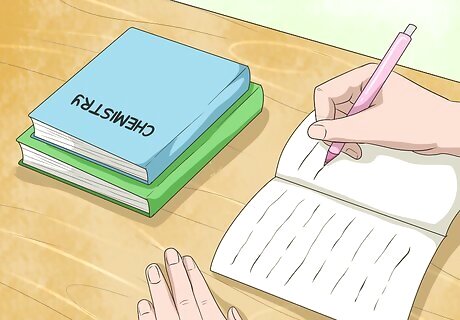
Review your syllabus or exam prep book and identify the main topics. Focus your studies on major ideas and concepts you’re expected to know. Study one main idea or concept at a time. Spend more time on topics that you’ve struggled to master in the past. Don’t worry about minor details, such as dates and quotes, until you’ve gotten a basic understanding of the main ideas and concepts. You’ll perform better on most exams if you have a broad knowledge of the topic rather than a few memorized facts. To keep yourself organized, you might write the topics you need to study into your schedule. You might also review prior tests or check the board exam website to identify the best areas to study.
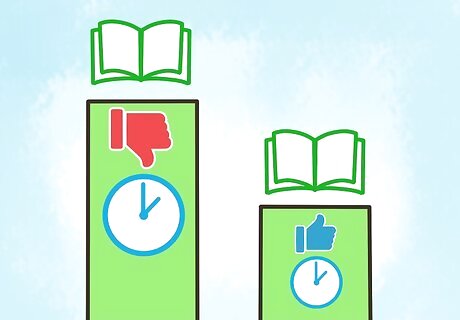
Review your prior work to identify weak areas you need to study. Everyone has strengths and weaknesses. Knowing yours can help you more easily prepare for your exams. Go through any graded assignments you have or talk to your instructor or supervisor. You might also review the list of concepts you’re expected to know. Make a list of areas you need to spend more time studying. You might spend less time studying material that falls under your strengths. Use the time you save to spend more time on the areas that are weaknesses for you. Taking pre-tests or practice tests will also help you uncover areas you need to study more. For example, if you're taking your medical board exams, you could use your test results from an In-Training Exam to determine which topics need more attention.
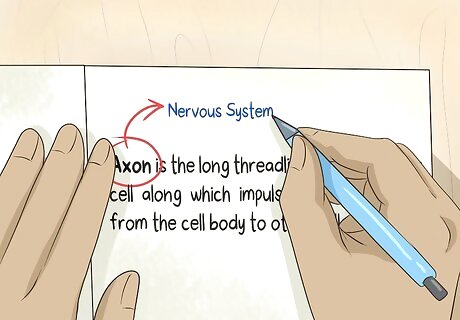
Read through your notes and fill in any gaps. Your notes are an essential study resource. Review what you’ve written and follow-up on areas where information is missing. Write down the questions you have after reviewing your notes, then find the answers. If you still have your study guides from prior exams, review those, as well. They can help you review the material and predict what might be on the test.
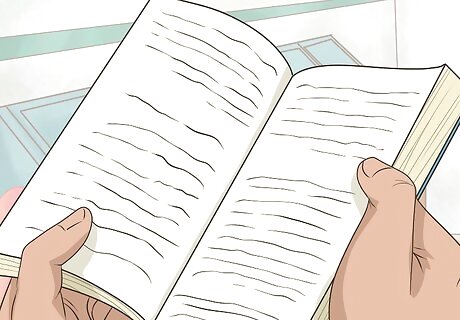
Re-read or skim your course materials. Go back through your texts and read through highlighted passages. Re-read sections that cover material you found confusing the first time around. Take additional notes as you read to aid you in your studies. Taking additional notes will also help you commit the ideas to memory. Re-read as much of the material as you can in the time you have to study. You may only have time to go over certain sections. Spend this time on areas where you’ve struggled. For example, you might go through your old textbooks to review highlighted portions and topics you struggled with the first time. If you have time, read up on current events or current peer-reviewed articles. For instance, when preparing for medical board exams, you might read medical journals related to your field.
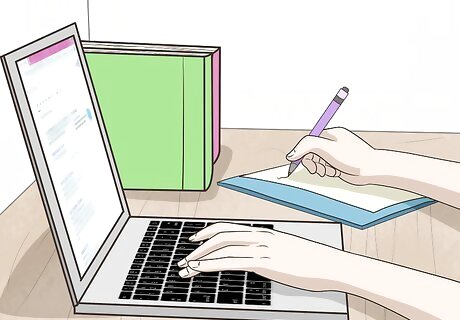
Use a study guide, review book, and online resources, if they’re available. In most cases, you can find a digital study guide for the board exams you’re taking. For some exams, you can purchase a book that covers the exam format, the subject matter you need to understand, and practice tests. In addition to study materials, you can find educational videos and articles about the topics you’re studying. Look online for a study guide or review book. Do a simple Internet search for your board exams to find out what's available to you. Many exams have study materials available for free. When choosing the best study guide, look for the most recent, updated version available. Additionally, check the publisher of the review guide, as well as any websites you use. Prioritize materials published by the testing board, as well as those from other reliable sources. As an example, you can find online quizzes to help you study for the internal medicine board exams.
Using Study Tricks

Create diagrams, summaries, and tables to help you learn. Organizing the information in new ways can help you better understand it. Plus, it gives you studying tools to re-use when you review the material. Here are some ways you can organize the information: Create mind maps. Make a numbered list. Do a flow chart. Make a comparison chart to compare similarities and differences Outline your notes

Create a mnemonic device or rhyme to help you remember information. A mnemonic device is a sentence or story where the first letter of each word represents something you need to remember. It might spell a word, represent a series, or remind you of a concept you need to know. As another option, you can create a rhyme using the information you need to remember. For example, you might remember the planets of the Milky Way with the following mnemonic device: “My very excellent mother just served us nuggets.” This helps you remember Mercury, Venus, Earth, Mars, Jupiter, Saturn, Uranus, and Neptune. As an example of a rhyme, you might need to remember that litmus paper turns blue for bases and pink for acids. Your rhyme might be, “Bases are blue, acids are pink, use litmus paper, to help you think.”

Set the information to music for easy recall. Making up a song to a popular tune can help you remember difficult concepts. Choose your favorite song or a simple tune like “Twinkle, Twinkle, Little Star.” It doesn’t matter if your song rhymes, as long as you can remember it. Sing your song aloud to yourself to help you remember it. During your exam, you can sing it to yourself in your head. Use this trick for information that’s hard to remember. You likely won’t be able to create a song for every concept you’ll need to remember. For instance, Harvard Medical School students have produced a few songs about medical information, which are available on YouTube.

Switch between topics so you don’t get mentally fatigued. Pair topics that you find most interesting with those you find challenging. Spend part of your study session covering the challenging topic, then take a break. Come back to your easier topic to maximize your study session. It’s normal for you to feel mentally exhausted while you’re studying. Don’t try to do too much at once. For example, you might study endocrinology during the first part of your study session, then switch to hematology. EXPERT TIP Josh Jones Josh Jones CEO, Test Prep Unlimited Josh Jones is the CEO and Founder of Test Prep Unlimited, a GMAT prep tutoring service. Josh built the world's first and only score guarantee program for private GMAT tutoring. He has presented at the QS World MBA Tour and designed math curricula for Chicago Public Schools. He has over 15 years of private tutoring and classroom teaching experience and a BA in Math from the University of Chicago. Josh Jones Josh Jones CEO, Test Prep Unlimited Take a break if you feel like you're stuck. If you don't feel like you're gaining ground on a specific topic, take a break or even an entire day off and come back to the material with a fresh mindset. You're more likely to grasp the information after some rest.

Work with a study group and teach each other. Teaching others what you know is a proven way to strengthen your understanding. When you work with a study group, you can cement what you’ve already learned and get help on topics you don’t quite understand. Look for an existing study group or start one of your own. You might find a study group at your school, through your library, or online. If you have friends who are also preparing for the board exams, invite them to start a study group.

Take regular study breaks to rest and refresh your mind. A 10-15 minute break every hour will help you improve your focus and avoid study fatigue. It will also improve your study experience. During your breaks, step away from your coursework and go for a walk, eat a snack, or do something fun, like listen to music. If you're grabbing a snack, choose something that will energize your brain and help you retain information. Great options include yogurt, whole grain cereal, popcorn, hummus with carrots or peppers, almonds, walnuts, or fresh fruit, like apples and bananas. Don’t do anything that might distract you from returning to your studies. For example, don’t start watching an episode of your favorite TV show, as it’ll be hard to turn it off and go study.
Testing Your Knowledge
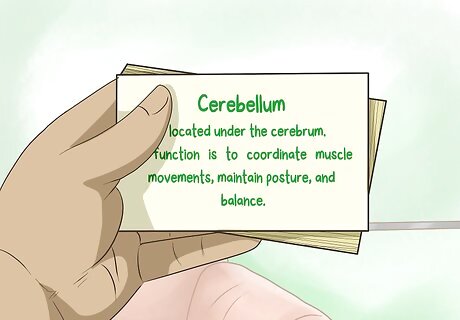
Make flashcards to test your memory. Flashcards are a convenient, easy way to study for your exams. You can create flashcards using index cards or pieces of paper, or you can make them online on a site like Quizlet. You can then flip through your cards to study for the exams. You may be able to find existing flashcards on Quizlet. For example, you can find pre-made flashcards for topics like medical terminology, medications, cell biology, etc.
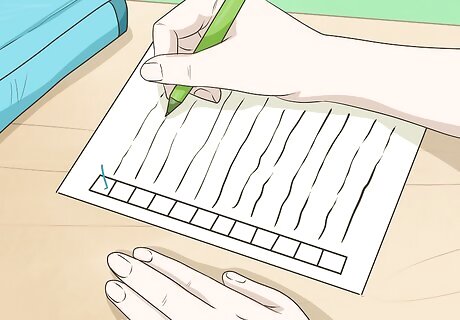
Use prior tests to check your knowledge of the material. Most board exams make previous tests available for people who plan to take them. This allows you to review the exam format and the types of questions on the exam. You can also use these tests as practice tests to predict how well you’ll perform on the actual test. If more than one prior test is available, use one to study the format and types of questions. Treat this test as a set of practice questions. Then, use another test as a practice test. When you’re doing a practice test, treat it like the real thing. Take the test in a quiet location and time yourself according to the test rules. Reader Poll: We asked 149 wikiHow readers, and 68% of them agreed that the best way to prepare for a test is to take online practice tests. [Take Poll]

Ask a friend or relative to quiz you over the material. This helps you determine what you know and what topics might need more attention. Additionally, giving your answers aloud can help you commit them to memory. Explaining your answers to someone else can help you better understand and retain the information. It's best to ask someone who knows the material to quiz you. However, anyone can quiz you, as long as you provide them with the correct responses to the questions so they can check your accuracy.
Being Ready for Test Day
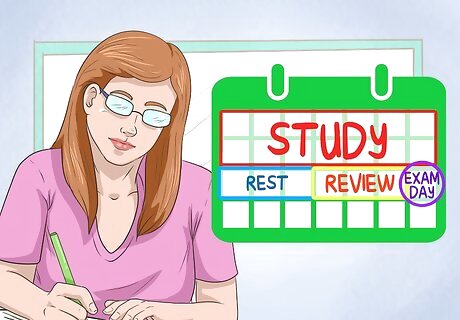
Save the few days before test day for a final review of the material. Don’t try to study new information in the days right before the test. Cramming won’t help you be successful! In the days right before you take your board exams, it’s best to just do a general review of the main ideas and concepts to refresh your memory. Make sure you’ve covered every topic you need to understand before your test day.

Go to bed early the night before the exam so you’re well-rested. You’ll perform better on the exam if you aren’t exhausted. Don’t stay up all night cramming for the test! Spend an hour or 2 before bed winding down, then get in bed about 8 to 10 hours before you need to be up in the morning. If you’re having trouble falling asleep, sit up in bed and do a relaxing activity. You might read a comforting novel, listen to calming music, color in an adult coloring book, or knit. Choose something that relaxes you.
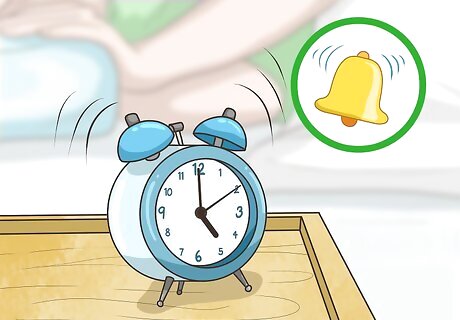
Set your alarm so that you can arrive early. Give yourself an extra hour of travel time to reach the exam site so you don't have to worry about being late. Not only will this give you padding in case you encounter traffic or miss a bus, it will also help you stay relaxed because you won’t feel pressed for time. If you’re setting an alarm on your phone, set several in case you sleep through one. You don’t want to sleep through your exams!
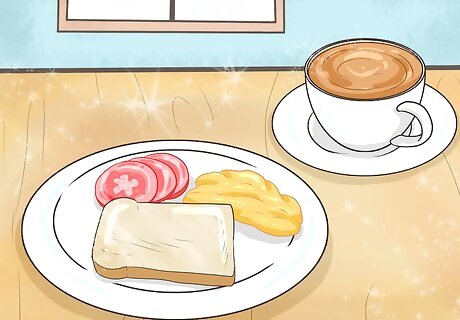
Eat a healthy, balanced breakfast the morning of the test. A good breakfast will help you focus throughout your exams. Complex carbohydrates along with a protein source are the best way to fuel yourself for your exams. Here are some breakfast ideas: Make a bowl of oatmeal with milk and sliced almonds. Eat scrambled eggs with a side of sliced tomatoes and a piece of whole-grain toast. Mix half a banana and toasted oats into a container of Greek yogurt.



















Comments
0 comment